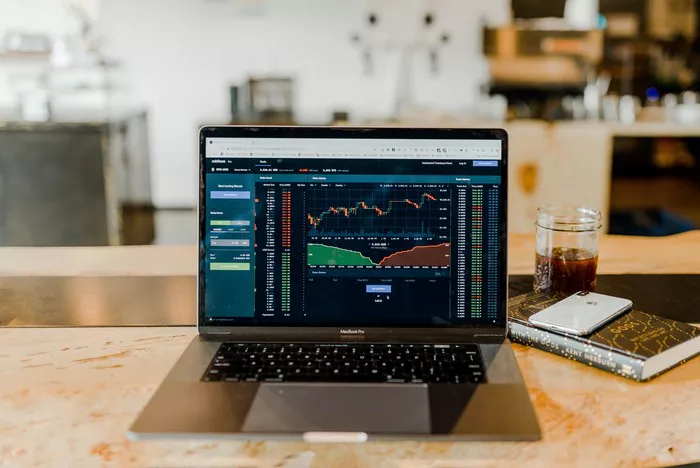In the realm of finance, two prominent avenues for investment and speculation are the stock and futures markets. These markets serve as vital components of the global financial landscape, each offering unique opportunities and dynamics. Understanding the differences between stock and futures markets is crucial for investors, traders, and financial enthusiasts aiming to make informed decisions and navigate the complexities of modern finance.
Defining Stock and Futures Markets
The stock and futures markets represent distinct mechanisms for trading financial instruments. Stocks, also known as equities, refer to ownership shares in individual companies. When an investor purchases a stock, they become a partial owner of that company, entitling them to a share of its profits and losses. Conversely, futures contracts are financial agreements that allow participants to speculate on the future value of a specific asset, such as a commodity, currency, or stock index. While both involve trading financial instruments, stocks involve ownership, whereas futures involve contractual obligations.
Ownership vs. Contractual Agreements
Perhaps the most fundamental difference between stock and futures markets lies in the nature of the assets being traded. In the stock market, investors purchase shares of ownership in companies. These shares confer ownership rights, including voting privileges and the potential to receive dividends. In contrast, futures contracts represent contractual agreements between two parties to buy or sell an asset at a predetermined price on a specific future date. The distinction between ownership and contractual obligations shapes the dynamics of these two markets.
Underlying Assets
Another notable distinction between stock and futures markets is the nature of the underlying assets being traded. In the stock market, investors trade shares of individual companies. The value of these shares is tied to the performance, financial health, and growth prospects of the company. In contrast, futures contracts can be linked to a diverse range of assets, including commodities (e.g., oil, gold), financial indices (e.g., S&P 500), interest rates, and currencies. This versatility allows participants in the futures market to speculate on a broader spectrum of economic factors.
Leverage and Margin Requirements
Leverage and margin requirements are essential factors that differentiate stock and futures trading. Leverage refers to the ability to control a larger position with a smaller upfront investment. In the futures market, participants often enjoy higher leverage, as they can control larger contract sizes with a fraction of the contract’s value as margin. On the other hand, stock trading typically involves lower leverage due to regulatory constraints and the necessity to purchase the entire value of the stock.
Short Selling and Hedging
Stock and futures markets offer distinct avenues for short selling and hedging strategies. Short selling involves selling an asset that the investor does not own, with the intention of repurchasing it at a lower price in the future. While short selling is common in both markets, it’s more straightforward in the futures market due to the contractual nature of futures contracts. Additionally, futures contracts are often used for hedging purposes, allowing participants to protect their portfolios from potential market downturns by entering contracts that offset potential losses.
Expiration and Settlement
Expiration and settlement mechanisms are integral to understanding the differences between stock and futures markets. In the stock market, shares of ownership are held indefinitely, with no predefined expiration date. In contrast, futures contracts have expiration dates, after which they are no longer valid. Participants in the futures market can choose to settle their contracts before expiration by taking an offsetting position, effectively closing out the contract. Alternatively, if a futures contract is held until expiration, it will be settled based on the agreed-upon terms, which may involve physical delivery or cash settlement.
Market Hours
The trading hours of the stock and futures markets also differ. Stock markets generally have set trading hours, with the most common being the regular trading session from 9:30 AM to 4:00 PM in the U.S. Futures markets, however, often offer extended trading hours, allowing participants to trade before and after the regular market hours. This extended trading can provide flexibility for traders to respond to after-hours news and global developments.
Regulatory Oversight and Exchanges
Both stock and futures markets are subject to regulatory oversight, but the specific regulatory bodies and rules can vary. Stock markets are regulated by securities commissions or similar entities in each country. In the U.S., for instance, the Securities and Exchange Commission (SEC) oversees the securities industry. The futures market, on the other hand, is regulated by agencies like the Commodity Futures Trading Commission (CFTC) in the U.S. Additionally, futures contracts are traded on organized exchanges, such as the Chicago Mercantile Exchange (CME), which provide standardized contracts and centralized trading platforms.
Risks and Rewards
Understanding the risks and rewards associated with stock and futures trading is vital for market participants. Investing in stocks offers the potential for long-term capital appreciation and dividend income, but it also exposes investors to company-specific risks and market volatility. Futures trading can provide opportunities for profit from both rising and falling markets, but it also involves higher levels of risk due to leverage and the potential for rapid price fluctuations.
Market Participants and Goals
Market participants and their objectives differ between stock and futures markets. Stock investors often include individuals, institutional investors, mutual funds, and retirement accounts. Their goals may range from long-term wealth accumulation to dividend income. Futures participants encompass a diverse group, including speculators, hedgers, arbitrageurs, and institutional traders. Their objectives vary from capitalizing on short-term price movements to managing risk exposure in their portfolios.
Conclusion
The distinctions between stock and futures markets are rooted in the nature of the assets traded, the ownership vs. contractual agreement paradigm, and the mechanics of each market. Understanding these differences is essential for investors and traders seeking to navigate these markets effectively and make informed decisions aligned with their financial goals. Whether choosing to invest in the ownership of individual companies or engage in speculative futures contracts, participants in both markets can benefit from a deeper understanding of their unique dynamics.


